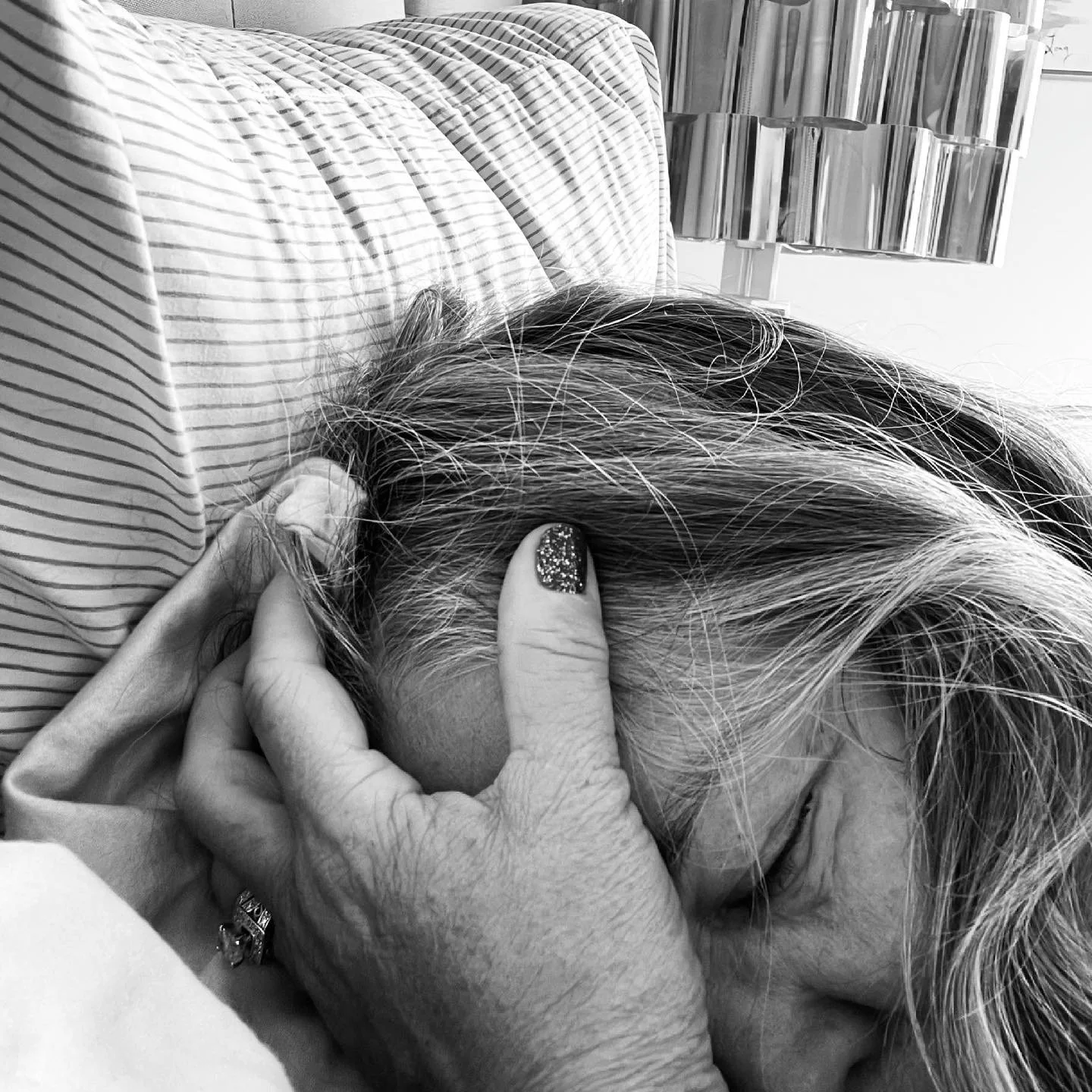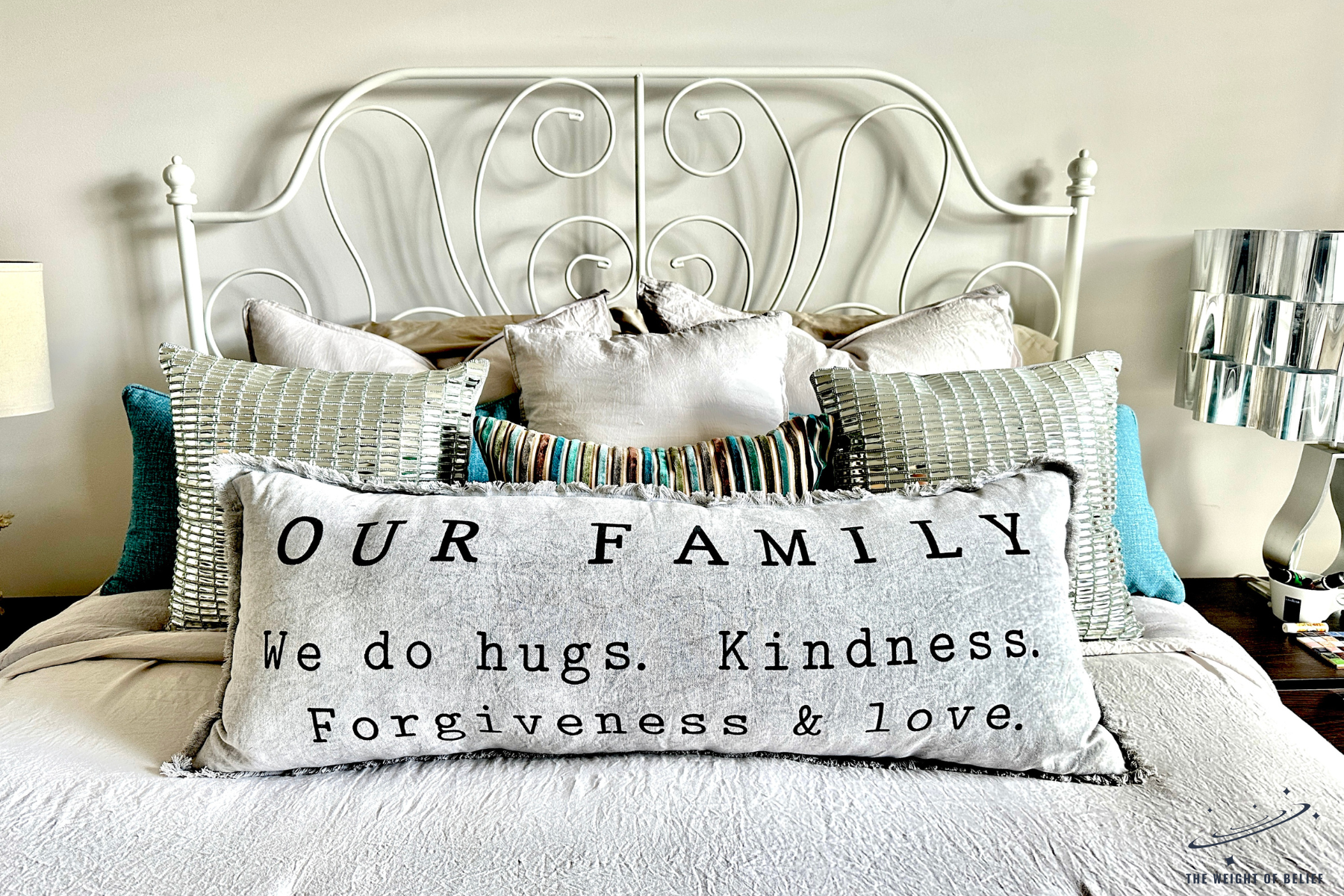The 10 Simple Things I Did That Supported My Healing in a Bold Way
When I finally chose to prioritize my healing, I knew I had to disconnect from the world’s noise.
My heart was already broken in a million pieces.
I was carrying more stress than I knew how to process.
I couldn’t take in any more suffering—mine or anyone else’s.
So I made some easy but powerful changes that created space for my healing.
These weren’t complicated steps.
They weren’t deep inner work or months of therapy.
They were simple shifts that gave me the quiet, the clarity, and the emotional breathing room I desperately needed.
Here are some of the easiest things I did that made the biggest difference:
1. I stopped watching/reading the news
I didn’t just stop watching the news—I stopped watching the weather, too.
Why?
Because even the way they reported the weather was stressful.
Words like brutal cold, treacherous storms, relentless heat had no place in my healing mind.
I needed a gentler world, one where the temperature was simply cold or hot, and storms were just rain or snow.
I already lived through brutal.
I survived treacherous.
I endured relentless.
My mean narcissistic mother embodied all of it.
She was brutal in her words, her punishments, and her ability to twist the knife where it hurt most.
She was treacherous in the way she betrayed me, gaslit me, and convinced me I was the problem.
And she was relentless—never letting up, never allowing me a moment of safety, always finding new ways to make me feel small, inadequate, and unworthy.
I didn’t need to hear those words outside of me when they had already shaped the entire landscape inside me.
I needed to strip them from my world. I needed peace.
So I turned it all off, even amid the people who told me I needed to know what was going on in the world. No, I didn’t!
And for the first time, I started to hear myself.
Take action now: remove all news apps from your devices and replace with an uplifting app. Use a weather app for forecasts.
2. I unfollowed social media accounts that hurt my heart
Politics and my friends who share their political views on social media.
Current events. Tragedies. Stories of suffering—human or animal.
Even posts from well-meaning friends who shared things that made my heart ache.
I didn’t unfollow because I didn’t care—I unfollowed because I cared too much.
My heart was already shattered and I didn’t have the emotional bandwidth to take on the world’s pain while I was drowning in my own.
So I remained friends, but I hit the ‘unfollow’ button.
And it brought me a deep, unexpected peace.
Take action now: it’s time to unfollow friends and social-media accounts that hurt your heart or make your eyes roll.
3. I set firm boundaries and said no without guilt
I stopped forcing myself to show up at family- or business events when I didn’t have the energy to put on a happy face or I felt like I was dying inside.
I stopped answering calls and texts that drained me.
I gave myself permission to opt out of things that didn’t feel safe or supportive.
I didn’t explain myself.
No justifications.
No over-explaining.
NO APOLOGIZING!
Just a simple ‘I won’t be able to make it.’
My peace became my priority.
Are there social events on your calendar? It’s OK for you to unapologetically say no. I explained it this way: “I’m not going to the ___ party next weekend. If I feel better, I’ll be there. But as of right now, I’m staying home.” If my decision upset people, I let them be upset. That’s their call, not mine.
4. I stopped consuming content that didn’t align with healing
Movies, TV shows, books—I became extremely selective.
If it was dark, tragic, violent, or emotionally heavy, I let it go. For good.
There’s a reason why I now love Hallmark movies, LOL!
I wasn’t in a place to process someone else’s trauma, fictional or not.
Instead, I surrounded myself with things that felt light—stories of hope, healing, love, and laughter.
And, I read uplifting books that helped me heal.
Take action now: Check out my free booklist. And, change the content you consume if it’s dark, tragic, violent, or emotionally heavy,.
5. I created a soft, quiet space for myself
I made my home my peaceful sanctuary (because my childhood home certainly wasn’t peaceful!).
I decluttered.
I made my bed every morning (still do), topping it with throw pillows whose messages whispered (or sometimes shouted) high-road defiance—classy, yet powerful reminders that I had rewritten the rules of my life:
Better Together pillow, honoring me and my kind, gentle husband—the soul who incarnated into this life as my anchor point (something that came through in a channeling session). Because victims of narcissistic parents commonly marry- or partner with narcissists. I didn’t.
a blue pillow with Smile embroidered in silver sequins, because sequins and glitter bring me joy. They sparkle all over my home, unapologetically.
a pillow that declares: And Together They Built a Life They Loved. Not a life of obligation, survival, or walking on eggshells—but one we chose, brick by brick, moment by moment.
and the ultimate defiance: OUR FAMILY. We do hugs. Kindness. Forgiveness & Love. A smack in the face to families led by a narcissist, where love is conditional, kindness is currency, and forgiveness is demanded but never given.
These weren’t just pillows. They were powerful, defiant declarations, especially when I had them on my bed while living under my mother’s roof as a caregiver in 2020!
Sovereign Rebel Boutique x The Weight of Belief—opening Fall 2025—will carry a line of high-road defiance throw pillows just like these. Classy, intentional, and quietly rebellious reminders that healing isn’t just an inside job—it can live in the very spaces we inhabit, surrounding us in strength, beauty, and high-road defiance.
I used high quality essential oils that smelled like peace. Young Living’s Peace & Calming, Stress Away, Northern Lights Black Spruce, and Sacred Mountain are some of my faves.
I made sure the first and last thing I heard each day was something soothing, not stressful.
Take action now: where can you add a touch of high-road defiance in your home? Throw pillows and wall hangings (I have one that says, “Kindness is Everything”) are great options.
6. I stopped explaining my healing to people who wouldn’t understand or care
Not everyone deserved access to my healing journey, especially my family of origin (sibling, aunts, uncles, etc).
I stopped trying to get people to get it.
If someone questioned why I was being so sensitive or acting different, I let them wonder.
Most people just don’t have the capacity to understand, mainly because they didn’t experience narcissistic abuse in any form.
And if you’re trying to explain to your family of origin, know that they’ll most likely not care because they’ll see you as they always have, especially the golden-child sibling.
No contact became my go-to.
I was done justifying my need for peace. Period.
Take action now: this is your sign to stop explaining your healing to others. What does that sound like for you? What doesn’t that sound like?
7. I gave myself permission to feel joy
For so long, I felt like joy wasn’t available to me.
Like I had to earn it, then be very careful with it.
But healing wasn’t just about processing pain—it was about remembering what lightness felt like.
I slowly let myself smile again. Laugh again.
Find beauty in little things: a breeze, freshly-cut grass in late spring, my mirrored disco-ball planter reflecting the sun, my granddaughter’s joy in picking up a random pebble, loading the dishwasher like an expert at Tetris, a new leaf sprouting in one of my houseplants…
Take action now: What does your list of beauty in the little things look like?
8. I gave myself permission to accept that downtime is not only okay—it’s safe to be seen doing nothing
For most of my life, I felt like I had to always look busy.
If someone walked into the room, I’d act like I was doing something productive.
If I heard footsteps in the hallway, I’d spring into action—tidying up, pretending to be engaged in something important or something my mean narc mother would approve of.
Sitting still, doing nothing, being instead of doing, felt unsafe.
No more!
I gave myself permission to sit, to rest, to stare out the window in complete stillness.
And, more importantly, I let myself be seen doing nothing—without guilt, without shame, without scrambling to justify it.
I was very hard at first, but it got easier.
I stopped proving my worth through busyness.
I started proving it through presence.
Take action now: practice sitting still for small brackets of time. Notice your thoughts and feelings each time. Let them exist, sit with them, and tell your inner child it’s OK to sit and be still. Once you’ve done that, let yourself be seen sitting still (notice I didn’t say to let yourself get CAUGHT sitting still—words are powerful!). This is the method I used to retrain myself.
9. I let myself cry—because feeling my emotions led to healing
For decades, I held everything in because I was conditioned from childhood that my emotions were inconvenient, dramatic, or too much.
Crying wasn’t safe.
It was viewed as a weakness by my mean narc mother and sibling.
It was something that could (and would) be used against me.
So I swallowed my pain, buried my grief, and pretended I was fine.
But healing required something different. It required letting the dam break.
So I cried:
I cried over the childhood I never had
I cried over the pain I carried alone
I cried over the fact that I had needed my mother and never truly had her
I cried for the little girl inside me who learned to be strong at the cost of feeling safe.
This is me in the very early phases of my healing.
And then, I cried through the impossibly complicated grief of my mean, narcissistic mother's passing. Because nothing about it was simple.
There was no tidy resolution, no peace in her absence, no guidebook for grieving someone who had spent their life making me and my dad suffer.
I wasn't just mourning her—I was mourning everything I never got from her. The love that never existed. The safety I never knew. The mother I needed but never had.
And I let those tears stay.
I didn’t rush to dry them, hide them, or explain them away.
I let them dry naturally, their crusty little trails visible war scars.
I let them do their job.
Because every time I cried, a little more of the weight lifted.
A little more of the poison drained out.
And in its place, healing began to grow.
Crying is necessary in The Hollow Passage.
The grief, the reckoning, the undoing—it demands to be felt.
There is no bypassing it, no shortcut through it.
I cried because my body remembers what my mind tried to forget.
I cried because the weight of it all was never mine to carry.
And in those tears, piece by piece, I reclaimed yourself.
Take action now: begin by telling yourself it’s OK to cry. If you’re here reading this post and exploring my website (visit the Start Here page if you’re new here), then I know you have stuff to cry about. It’s OK! I let my tears flow anytime memories popped up while I was in a safe place to cry (driving—don’t cry while driving ;-) ). Stop hiding behind your stoic façade.
10. I stopped apologizing for every little thing
I used to apologize constantly.
If I didn’t reply to a text right away—I’m so sorry!
If I set a boundary—I’m sorry, but I just can’t.
If I chose myself over someone else’s expectations—I feel bad, but…
It was a reflex.
A learned survival tactic.
I had been trained to believe that my existence—my choices, my needs, my time—was an inconvenience.
So I apologized for taking up space.
But I eventually got to a point where I wasn’t sorry anymore.
I stopped apologizing for responding to texts when I had the capacity.
I stopped apologizing for choosing my peace over someone else’s comfort.
I stopped apologizing for being a person with limits, needs, and preferences.
Because I was finally allowed to exist without explaining myself.
And that was a freedom I had never known before.'
Take action now: it feels effortless to apologize, so your first step is to become aware of it. Awareness is always the first step. As soon as you catch yourself starting to say you’re sorry, take a deep breath, look in the opposite direction in order to physically signal a change in thoughts, then slowly exhale your breath. This is what worked for me.
Final Thoughts
These changes were simple.
They didn’t require money, therapy, or years of work.
But they gave me exactly what I needed: space, peace, and the ability to focus on me without the weight of the world pressing down.
Sometimes healing isn’t about doing more. It’s about removing what no longer serves you.
And that alone can change everything.



